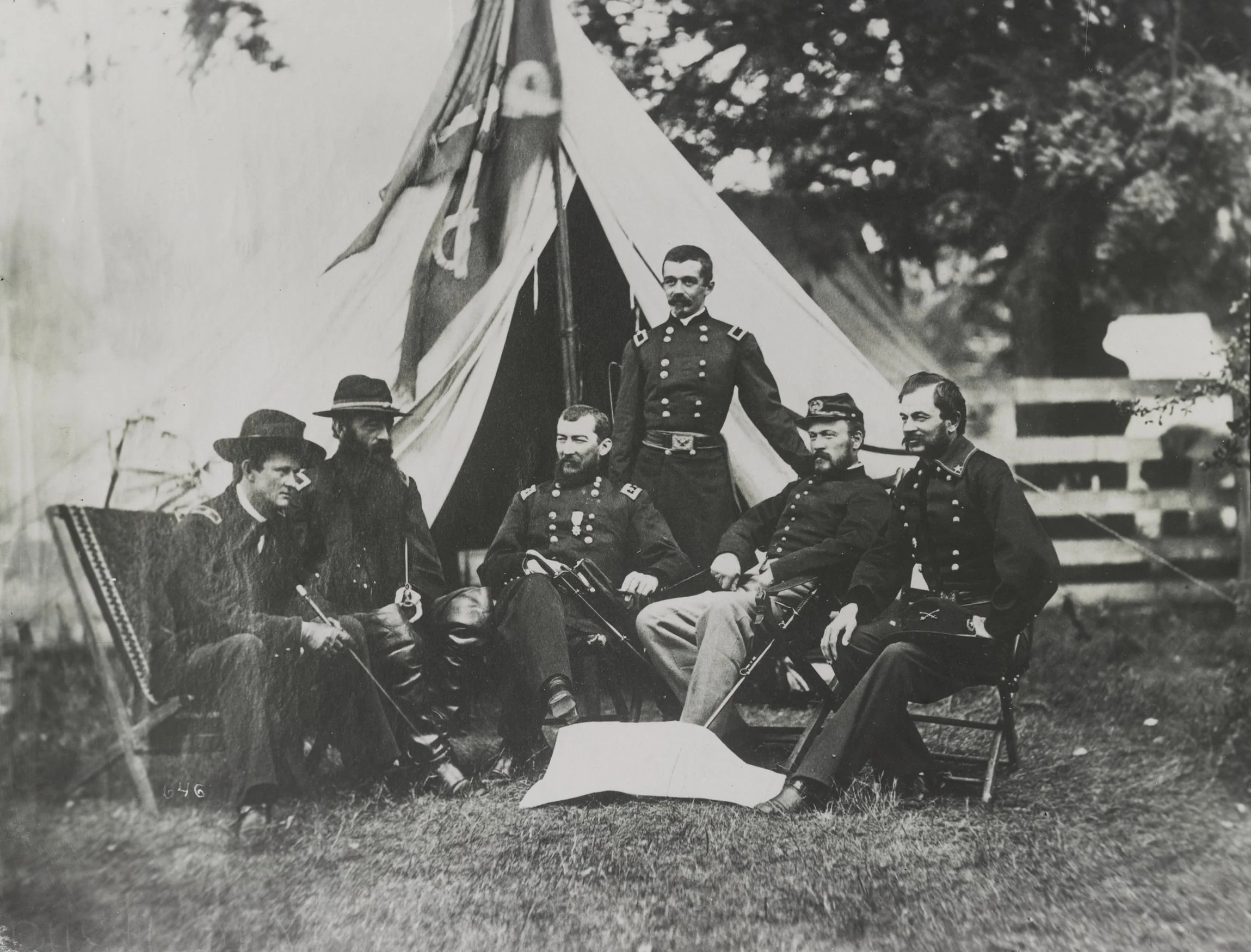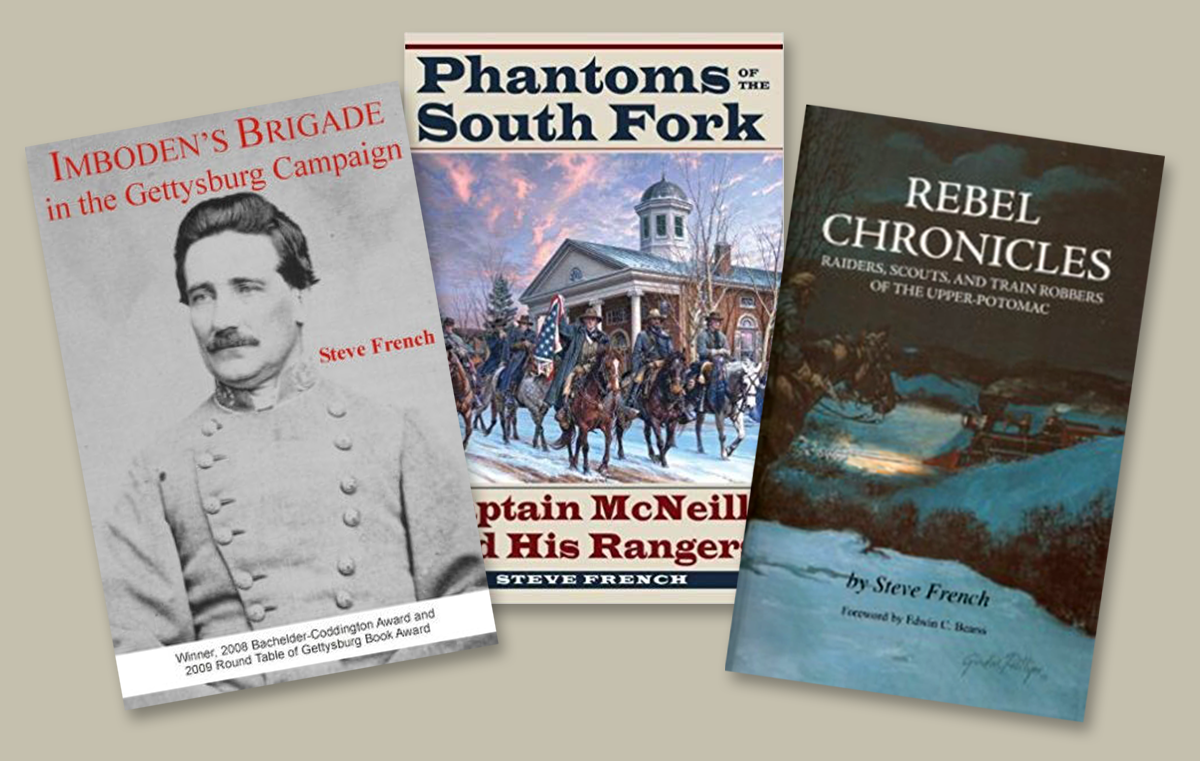The Civil War At Home
Portrait shows from left: Wesley Merritt, David McMurtrie Gregg, General Sheridan, Henry Eugene Davies, James Harrison Wilson, Alfred Torbert. Part of Brady-Handy Collection.
Steven French Inspires Civil War Interest
Noted author and Civil War historian Steven French will be a presenter at the 2021 Victorian Chautauqua in Mountain Lake Park on Sunday, July 11. The Hedgesville, West Virginia native is nationally recognized for Confederate guerilla warfare in the Eastern Theater. He will speak on the importance and role of the B&O Railroad in western Maryland and what it took to keep the line up and running in the face of repeated Rebel attacks.
“Even though western Maryland had a number of Confederate sympathizers,” French explains, “The majority of the population supported the Union and helped to supply its army with recruits, livestock and supplies. Today, it is still a region with very patriotic men and women.”
French is the author of the multiple-award-winning book, Imboden’s Brigade in the Gettysburg Campaign along with Rebel Chronicles: Raiders, Scouts and Train Robbers of the Upper-Potomac, and the more recently released, critically acclaimed Phantoms of the South Fork: Captain McNeill and his Rangers. He is also the editor of Four Years Along the Tilhance: The Diary of Elisha Manor. His long list of credits and knowledge of the Civil War provide tremendous insights into a turbulent time in America’s history.
Making Civil War History
Several books have earned French national recognition as an expert on Confederate guerilla warfare in the eastern theater.
As long as the sectional economic differences existed between the North, South, and West, a split was inevitable, according to French. He attributes the divide to an election that brought a party to power led by Abraham Lincoln. The Republican party advocated for high tariffs, more federally sponsored internal improvements in the North and West, and the elimination of slavery in the territories. This led the political leaders of the Cotton States to realize it was time to go.
Lincoln was the first Republican Party candidate to win the presidency. However, before his inauguration, seven slave states with cotton-based economies declared secession and formed the Confederacy. Eight remaining slave states continued to reject calls for secession.
Conflicts began on April 12, 1861, when Confederate forces fired upon Fort Sumter, South Carolina. While in the Western Theater, the Union made significant permanent gains, in the Eastern Theater, the fighting was inconclusive during 1861–1862. Later, in September 1862, Lincoln issued the Emancipation Proclamation, which made ending slavery a central theme and war goal.
Prolific Author
French’s writing awards include The 2008 Bachelder-Coddington Award, the 2009 Gettysburg Civil War Round Table Book Award, the Jefferson Davis Historical Gold Medal, and the Hagerstown Civil War Round Table’s 2016 Henry Kyd Douglas Award. He is the current President of the Harpers Ferry Civil War Round Table.
In the midst of fevered disputes, the North and South remained focused on winning, and in hindsight, some lessons can be learned from this bloody war that took 620,000 lives and nearly destroyed America.
When a country has two or more large groups of people that have such a different political and social vision for the nation's future, it will be very difficult for the national government to continue to function, according to French.
“As these groups begin to despise one another more and more, it will only take a violent incident, such as the John Brown Raid, to turn what has been a cold civil war into a hot one.”
Although the Civil War lasted only four years and ended 156 years ago, it remains infectiously interesting to subsequent generations. French identifies the Civil War as the most fascinating and important event in American history.
“For over 150 years, its violent battles and an amazing cast of characters have made it an epic story on par with the tales of ancient Greece and Rome,” He says. “Some writers have referred to it as ‘The American Iliad’.”
As the author of more than 100 historical articles, French’s stories have appeared in numerous publications, including The Washington Times, Gettysburg Magazine, and Crossfire: The Magazine of the American Civil War Round Table U.K.





